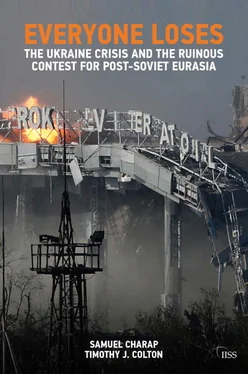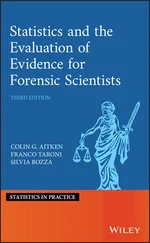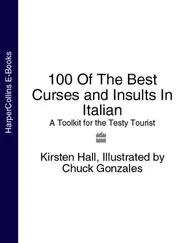Ibid. , pp. 200–1.
Mary Elise Sarotte, ‘A Broken Promise? What the West Really Told Moscow about NATO Expansion’, Foreign Affairs , vol. 93, no. 5, September/October 2014, p. 97. Sarotte has written that this was done ‘by design’. We agree that one effect of the institutional design adopted at the time was to place Russia on Europe’s periphery, but we do not see this as the intended result.
Along with Russia, Armenia, Azerbaijan, Kazakhstan, Kyrgyzstan, Moldova, Tajikistan, Turkmenistan and Uzbekistan were founding members. Georgia did not join until 1993.
The three Baltic states had been independent countries between the world wars. The United States had never recognised their annexation by the Soviet Union in 1940.
Belarus and Ukraine had formally been members of the UN since 1945, despite their subordination to the Soviet government in Moscow.
Strobe Talbott, Russia Hand: A Memoir of Presidential Diplomacy (New York: Random House, 2002), p. 94.
Ibid.
The report was published in ‘Perspektivy rasshireniya NATO i interesy Rossii: Doklad Sluzhby vneshnei razvedki’, Izvestiya , 25 November 1993. For a summary, see Steven Erlanger, ‘Russia Warns NATO on Expanding East’, New York Times , 26 November 1993.
For the September letter, see Roger Cohen, ‘Yeltsin Opposes Expansion of NATO in Eastern Europe’, New York Times , 2 October 1993, http://www.nytimes.com/1993/10/02/world/yeltsin-opposes-expansion-of-nato-in-eastern-europe.html.
‘Interv’yu c ministrom inostrannykh del Rossiiskoi Federatsii Andreem Kozyrevem’, Rossiiskaya gazeta , 7 December 1993.
Quotations from a declassified memo of the conversation at ‘Secretary Christopher’s Meeting with President Yeltsin, 10/22/93, Moscow’, http://cdn.warontherocks.com/wp-content/uploads/2016/07/Christopher-Yeltsin-1993-MemCon.pdf. See the discussion in James Goldgeier, ‘Promises Made, Promises Broken? What Yeltsin Was Told About NATO in 1993 and Why It Matters’, War on the Rocks, 12 July 2016, http://warontherocks.com/2016/07/promises-made-promises-broken-what-yeltsin-was-told-about-nato-in-1993-and-why-it-matters/.
‘The President’s News Conference With Visegrad Leaders in Prague’, 12 January 1994, http://www.presidency.ucsb.edu/ws/?pid=49832.
James M. Goldgeier, Not Whether But When: The U.S. Decision to Enlarge NATO (Washington DC: Brookings Institution Press, 1999), p. 20.
Stephen Sestanovich, ‘Could It Have Been Otherwise?’, American Interest , vol. 10, no. 5, 2015, http://www.the-american-interest.com/2015/04/14/could-it-have-been-otherwise/.
Goldgeier, Not Whether But When , pp. 169–70. Exhaustive accounts of the domestic politics of NATO enlargement (and the roles of politicians, business interests, think tanks and ethnic lobbies) can be found in these books: Ronald D. Asmus, Opening NATO’s Door: How the Alliance Remade Itself for a New Era (New York: Council on Foreign Relations, 2002); George W. Grayson, Strange Bedfellows: NATO Marches East (Lanham, MD: University Press of America, 1999).
Quotations from Asmus, Opening NATO’s Door , p. 192; Evgenii Primakov, Vstrechi na perekrestkakh (Moscow: Tsentrpoligraf, 2015), pp. 221–2.
Daniel Deudney and G. John Ikenberry, ‘The Unravelling of the Cold War Settlement’, Survival: Global Politics and Strategy , vol. 51, no. 6, December 2009–January 2010, p. 51.
See the summary in Maksim Yusin, ‘Moskve ne udalos’ provesti perestroiku SBSE’, Izvestiya , 12 October 1994.
Primakov, Vstrechi na perekrestkakh , p. 221.
‘Founding Act on Mutual Relations, Cooperation and Security between NATO and the Russian Federation Signed in Paris, France’, 27 May 1997, http://www.nato.int/cps/en/natohq/official_texts_25468.htm.
Hiski Haukkala, ‘Russian Reactions to the European Neighborhood Policy’, Problems of Post-Communism , vol. 55, no. 5, September 2008, pp. 40–8.
Sestanovich, ‘Could It Have Been Otherwise?’
Critics also brought up the central role of Russia and Boris Yeltsin in dismantling the Soviet regime. George F. Kennan in 1998 declared that expansion of the Alliance over Russia’s objections was ‘turning our backs on the very people who mounted the greatest bloodless revolution in history to remove that Soviet regime’. Quoted in Thomas L. Friedman, ‘Foreign Affairs; Now a Word from X’, New York Times , 2 May 1998.
The comment by Goldgeier in 1999 sums up this miscalculation: ‘Once the NATO–Russia Founding Act was signed… it was difficult for critics to make the case that Russia found enlargement unacceptable.’ Goldgeier, Not Whether But When , p. 172.
See Milada Anna Vachudova, Europe Undivided: Democracy, Leverage, and Integration After Communism (Oxford: Oxford University Press, 2005).
For more on the role of external powers here, see Alexander Cooley, Great Games, Local Rules: The New Great Power Contest in Central Asia (Oxford: Oxford University Press, 2012).
In the European Union, for example, the French, British and Italian economies are roughly two-thirds the size of the German. In East Asia, China and Japan are about equal in economic strength. In the Western Hemisphere, the US economy, in current prices, is about seven times the size of the Brazilian economy and nine times the size of the Canadian.
David A. Lake, ‘The Rise, Fall, and Future of the Russian Empire: A Theoretical Interpretation’, in Karen Dawisha and Bruce Parrott (eds), The End of Empire? The Transformation of the USSR in Comparative Perspective (Armonk, NY: M.E. Sharpe, 1997), pp. 54, 55.
Nunn–Lugar funds were also used to dispose of chemical and biological weapons. Russia participated in the programme until 2015. The negotiations with the Ukrainians are described in Graham Allison, ‘What Happened to the Soviet Superpower’s Nuclear Arsenal?’, Discussion Paper 2012, Belfer Center for Science and International Affairs, John F. Kennedy School of Government, Harvard University, March 2012, http://belfercenter.ksg.harvard.edu/files/3%2014%2012%20Final%20What%20Happened%20to%20Soviet%20Arsenals.pdf.
From the full text in Russian at ‘Strategicheskii kurs Rossii s gosudarstvami – uchastnikami Sodruzhestva Nezavisimykh Gosudarstv’, 14 September 1995, http://www.mid.ru/foreign_policy/official_documents/-/asset_publisher/CptICkB6BZ29/content/id/427752(italics added). President Putin in 2005 nullified two minor articles of the decree, leaving the rest of it intact.
Quoted in Talbott, Russia Hand , p. 80.
Yevgeny Ambartsumov, quoted in Emil Pain, ‘Mezhnatsional’nye konflikty v politicheskoi igre’, Nezavisimaya gazeta , 10 July 1992.
Читать дальше











